You may question why you feel drowsy after a day in the sun, but it’s a common phenomenon. Even if you’re just lazing on the beach, you’ll be wishing you had brought a sleeping bag.
To help you stay alert and safe when it’s hot outside, we’ve compiled this guide to help you beat the heat. If you have trouble falling asleep at night, we’ll show you how to use heat to your benefit.
Heat and Tiredness
Maintaining a safe internal temperature is a priority for your body when it’s overheated. When you’ve put in so much time and effort, it’s easy to become depleted of energy.
The hypothalamus is a portion of the brain that regulates bodily activities, including the sweat glands, skin, and blood vessels, in order to keep your body temperature under control.
How the Body Regulates Temperature
Perspiration, or sweating, is one way your body keeps cool. Sweat glands are found throughout the body and are responsible for the production of perspiration. Water makes up the majority of human perspiration, but minor amounts of salt, sugar, ammonia, and urea are also present. A little hole in your skin called a pore will allow the sweat to leave your body. Sweat evaporates from your skin as it touches the air, keeping you cool.
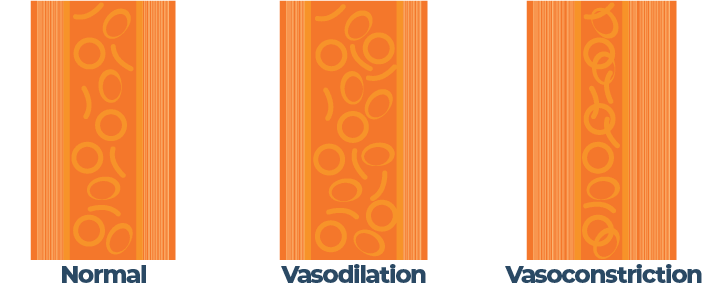
Vasodilation is another natural technique for your body to cool itself. Your blood vessels dilate, allowing more blood to flow to the skin’s surface to cool down the warm blood there, while this process is taking place. As a result, some people’s complexion may appear redder when they’re overheated because of this.
More Ways Heat Makes You Sleepy
In addition to your body’s natural cooling mechanisms, the heat can damage your body in a variety of ways, leaving you exhausted.
You Become Dehydrated
When your body expels more fluids than you consume, you’re dehydrated. If you don’t replace the fluids you lose when sweating, you run the risk of being dehydrated. Fatigue is a side effect of dehydration.
A lack of hydration can also lead to more serious health concerns, including heat exhaustion, heatstroke, urinary and renal difficulties as well as seizures and hypovolemia shock. Dehydration can be deadly for everyone, but it’s particularly harmful to children and the elderly because of their weakened immune systems.
Drop In Blood Pressure
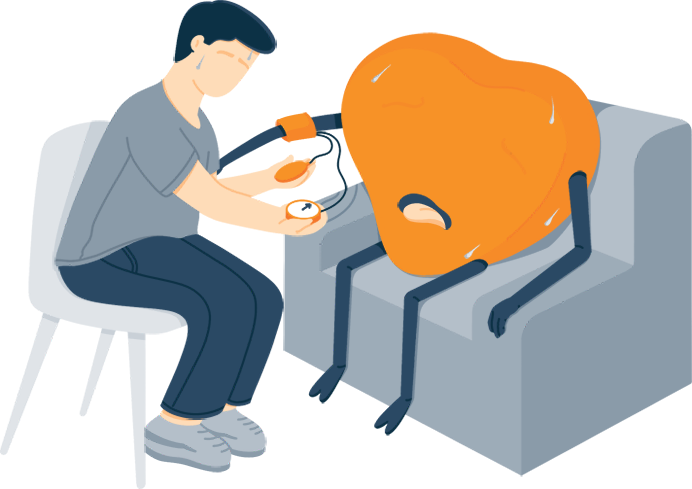
Dehydration and an increase in blood flow to the skin might occur as a result of overheating, as was previously indicated. Hypotension (low blood pressure) is the medical term for this condition. One of the signs of low blood pressure is exhaustion.
Diarrhea, fainting, and falls can occur more frequently in elderly people who have low blood pressure.
Emotional Connection
In addition to the physical impacts of heat, there is also a psychological reason for feeling drowsy.
When you hear a certain song or smell a certain scent, it can quickly transport you back in time. For many people, a strong emotional connection can lead to a strong connection between two things.
Most of us think of sleep as a time spent curled up warmly in our bed with a good book or watching TV. It’s simple for your mind to interpret being warm as a time for sleep, and your body will respond appropriately.
Sunburn Can Make You More Tired
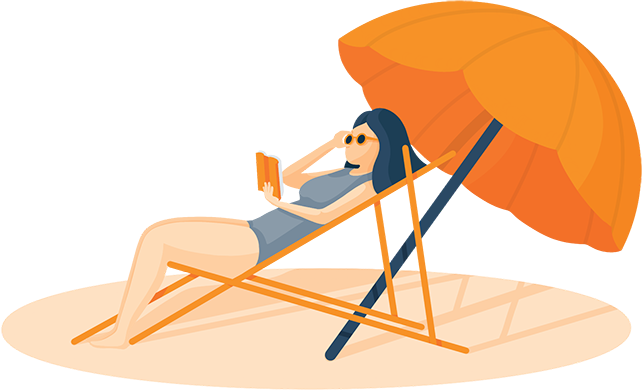
Spending too much time in the sun without using sunscreen or other preventative measures can make you feel drowsy. A strong sunburn can increase the consequences of dehydration and could cause you to go into shock if you don’t drink enough water. When you’re in shock, your blood pressure may drop, you may faint, and you may feel extremely weak.
Heat Exhaustion
Heat fatigue can occur when your body is unable to keep up with the demands of the situation. Overheating is a symptom of this condition.
Heatstroke is the most serious and life-threatening of all heat-related illnesses.
Symptoms of Heat Exhaustion
- Skin that is both cool and moist
- Dizziness
- Fainting
- Fatigue
- a lot of perspiration
- Myocardial infarction
- While standing, one’s blood pressure drops.
- Strained muscles
- Nausea
- Headache
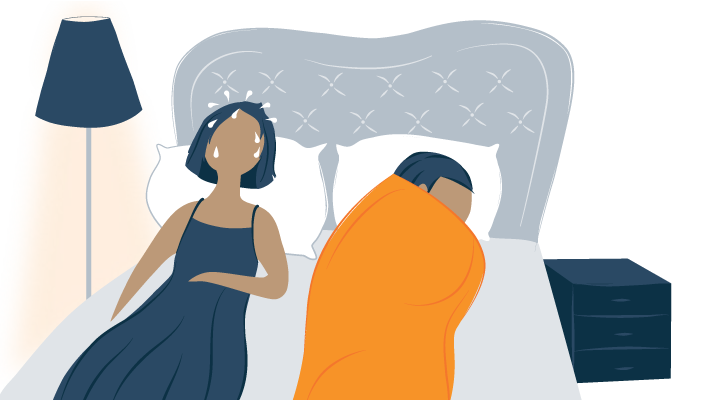
How to Feel More Awake on Hot Days
When it comes to making you tired, it doesn’t matter if the temperature is high. As a result of taking precautionary measures to stay safe, you should be more attentive and awake when the temperature begins to climb.
Drink Plenty of Water
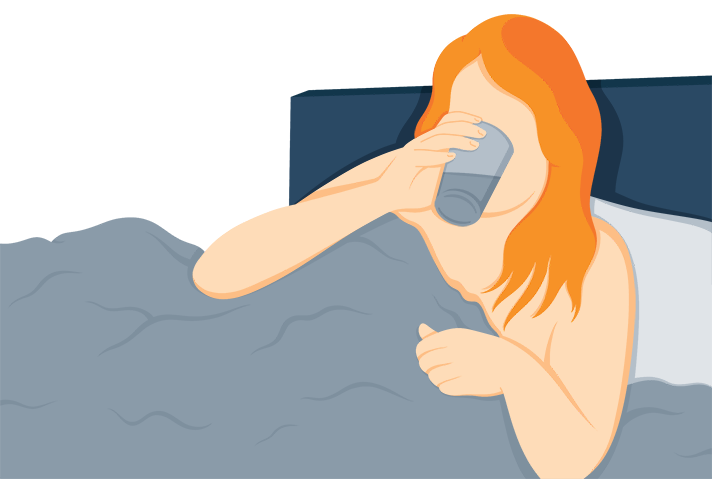 Drinking a lot of water can help prevent dehydration, which can lead to drowsiness. Though you’re sweating, even if you don’t feel thirsty, you need to rehydrate. However, not all fluids are beneficial in the same way. Caffeinated beverages and alcoholic beverages should be avoided, according to Hackensack Meridian Health.
Drinking a lot of water can help prevent dehydration, which can lead to drowsiness. Though you’re sweating, even if you don’t feel thirsty, you need to rehydrate. However, not all fluids are beneficial in the same way. Caffeinated beverages and alcoholic beverages should be avoided, according to Hackensack Meridian Health.
Get Some Shade
The hottest time of day is between 10:00 a.m. and 4:00 p.m. To avoid overexposure to the sun and heat, you should either stay inside or take pauses in the shade.
Put On Sunblock
Wearing sunscreen will help prevent sunburn and further dehydration. SPF 30 is recommended by the majority of dermatologists. Wearing a hat or sunglasses might also help reduce your exposure to the sun.
Wear Loose-Fitting Clothes
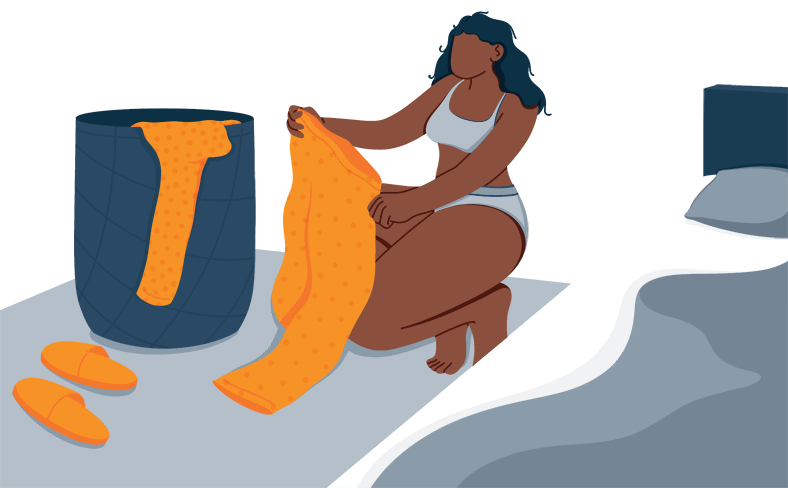 On particularly hot days, choose for airy, loose-fitting garments made of natural fibers such as cotton or linen. You should also avoid synthetic materials, which trap heat and make you hotter.
On particularly hot days, choose for airy, loose-fitting garments made of natural fibers such as cotton or linen. You should also avoid synthetic materials, which trap heat and make you hotter.
Avoid Cooking
Use your stove or oven on a hot day to increase the temperature in your house. Instead, opt for reheating food in the microwave or eating salads that are made from fresh ingredients.
Change Your Workout Routine
Summer is a great time to work out early in the morning or late at night, when temperatures are lower. It’s also a great way to get in some exercise and stay cool at the same time, so consider including swimming into your workouts.
How Heat Could Help If You Have Trouble Sleeping at Night
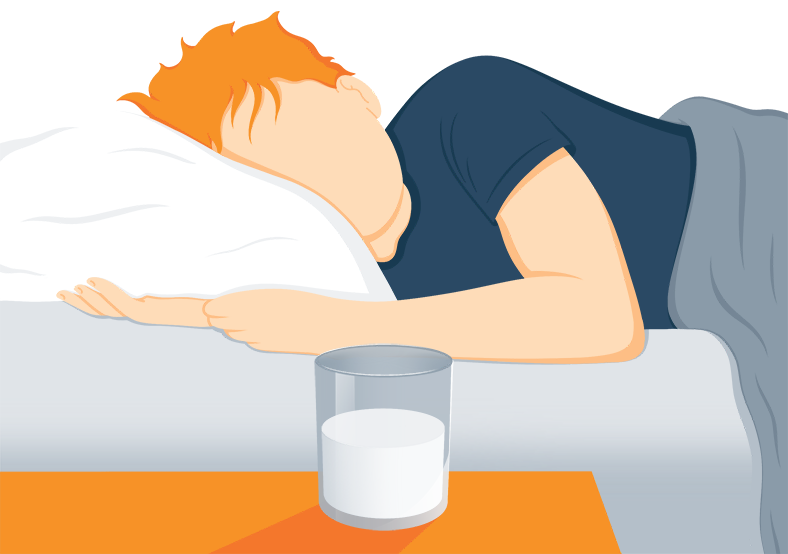
Those who find it difficult to sleep at night may benefit from using heat.
A circadian rhythm governs the 24-hour sleep-wake cycle of the human body. In order to induce sleep, the circadian rhythm lowers our core body temperature, which is regulated by this biological system.
Many people have trouble falling asleep despite the body’s natural process of preparing us for bed. A quick drop in body temperature has been shown to aid in the onset of sleep according to research[9]. In other words, trying to imitate this before going to bed should help you get some shut-eye.
Warm milk or a hot bath might help raise your body temperature. Allow your body’s temperature to fall to aid in sleep induction.
What are the differences between regular tiredness and heat exhaustion or heat stroke?
Heat exhaustion isn’t ideal, but it doesn’t pose a significant risk to your health.
When you’re suffering from a condition like heat exhaustion or heat stroke, you may not be able to control your body temperature.
Rao points out that there are a number of warning signs that your sun drowsiness is becoming more serious.
According to him, “the simplest thing to track is your urinary output.” You know something’s wrong when you discover you haven’t peed all day.
An elevated heart rate that persists for an extended length of time is another warning sign that your body is having difficulty controlling its internal temperature, as is a sudden cessation of perspiration as a cooling mechanism. These symptoms are more common in children and the elderly.
Anyone who stops sweating, feels sick, or becomes dizzy or confused when outside in the heat should seek immediate medical attention.
Try to loosen their garments and call 911 while you wait for the ambulance to arrive. It’s okay to give them water if they’re responsive and able to drink it.
Please consider giving this post a star rating of at least one

![Top Rated CPAP Machine Buyer’s Guide [current_date format=’m/Y’]](https://bestpillowsleepers.com/wp-content/uploads/2023/03/best-cpap-machine-img_6405d72310053-400x300.jpg)
![The 11 Best Cooling Weighted Blankets [current_date format=’m/Y’]](https://bestpillowsleepers.com/wp-content/uploads/2023/01/best-cooling-weighted-blankets-img_63d4ff15c615d-400x300.jpg)
![Ultimate Guide to Choosing a Best Cooling Mattress Pads [current_date format=’m/Y’]](https://bestpillowsleepers.com/wp-content/uploads/2023/01/best-cooling-mattress-pads-img_63c403115126b-400x300.jpg)
![Ultimate Guide to Choosing a Best Cooling Mattress [current_date format=’m/Y’]](https://bestpillowsleepers.com/wp-content/uploads/2023/01/ultimate-guide-to-choosing-a-best-cooling-mattress-img_63bcdba870d77-400x300.jpg)
![Ultimate Guide to Choosing a Best Cooling Comforters [current_date format=’m/Y’]](https://bestpillowsleepers.com/wp-content/uploads/2023/01/ultimate-guide-to-choosing-a-best-cooling-comforters-img_63bba2f5cd3ce-400x300.jpg)